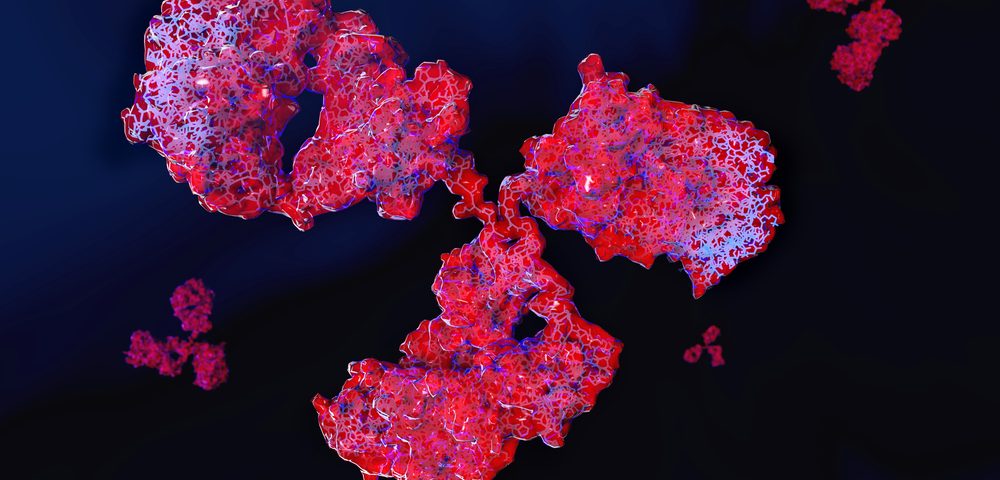Thirty percent of patients with metastatic triple-negative breast cancer (TNBC) responded to the experimental therapy sacituzumab govitecan after failing to respond to other treatments, according to Phase 2 trial results.
Other measures of its effectiveness included the length of time patients responded to treatment, overall patient survival rate, and time to progression. The therapy was also well-tolerated, the team added.
The study, “Efficacy and Safety of Anti-Trop-2 Antibody Drug Conjugate Sacituzumab Govitecan (IMMU-132) in Heavily Pretreated Patients With Metastatic Triple-Negative Breast Cancer,” was published in the Journal of Clinical Oncology.
Sacituzumab govitecan is an antibody-drug conjugate composed of an anti-TROP-2 antibody linked to a toxic payload, SN-38.
TNBC patients, whose tumors lack estrogen and progesterone receptors and do not over-express HER2, lack targeted therapies. Chemotherapy is the current standard of care, but only 15 to 20 percent of patients with metastatic disease respond to it.
“This approach may represent a new therapy paradigm for this difficult-to-treat disease, which is typically associated with an aggressive tumor biology and poor survival,” Aditya Bardia, MD, MPH, of the Massachusetts General Hospital (MGH) Cancer Center, said in a press release. He was the study’s lead author.
Sacituzumab govitecan has shown promise as a breast cancer therapy. It displayed high anti-tumor activity in preclinical models, and did not harm healthy cells.
The therapy also got good marks in a Phase 1 clinical trial with previously treated metastatic TNBC patients. It achieved a 29 percent objective response rate — that is, 29 percent of patients responded to it partially or completely. The median duration of response was 10.8 months, and patients’ overall survival rate was 18.8 months.
The 69 patients in the single-arm, multicenter Phase 2 trial of sacituzumab govitecan had relapsed or refractory metastatic TNBC. They received a median of five previous therapies before doctors administered sacituzumab govitecan.
The study’s primary endpoints, or measuring sticks, were objective response rate and safety. The secondary endpoints were overall survival and progression-free survival.
After a median follow-up of 16.6 months, 30 percent of patients had responded to treatment. Two had complete responses and 19 partial responses.
The median duration of response was 8.9 months, although three patients responded for nearly 20 months.
The median overall survival rate of the study participants was 16.6 months, considerably longer than the 10 to 13 months of most metastatic TNBC patients. The participants’ median progression-free survival was six months, compared with 3.5 months in trials of standard treatments for metastatic TNBC.
Side effects, which included nausea, hair loss, and low levels of white blood cells, were generally moderate and manageable with supportive therapy.
“We saw very encouraging responses that were early and durable in patients who had been heavily pre-treated with an average of five prior therapies since diagnosis. The major toxicities of this drug are manageable, which means it can be given repeatedly,” said Bardia, an assistant professor of Medicine at Harvard Medical School. “It now needs to be studied in patients with early-stage disease, in combination with other drugs and to treat patients with other forms of breast cancer.”

